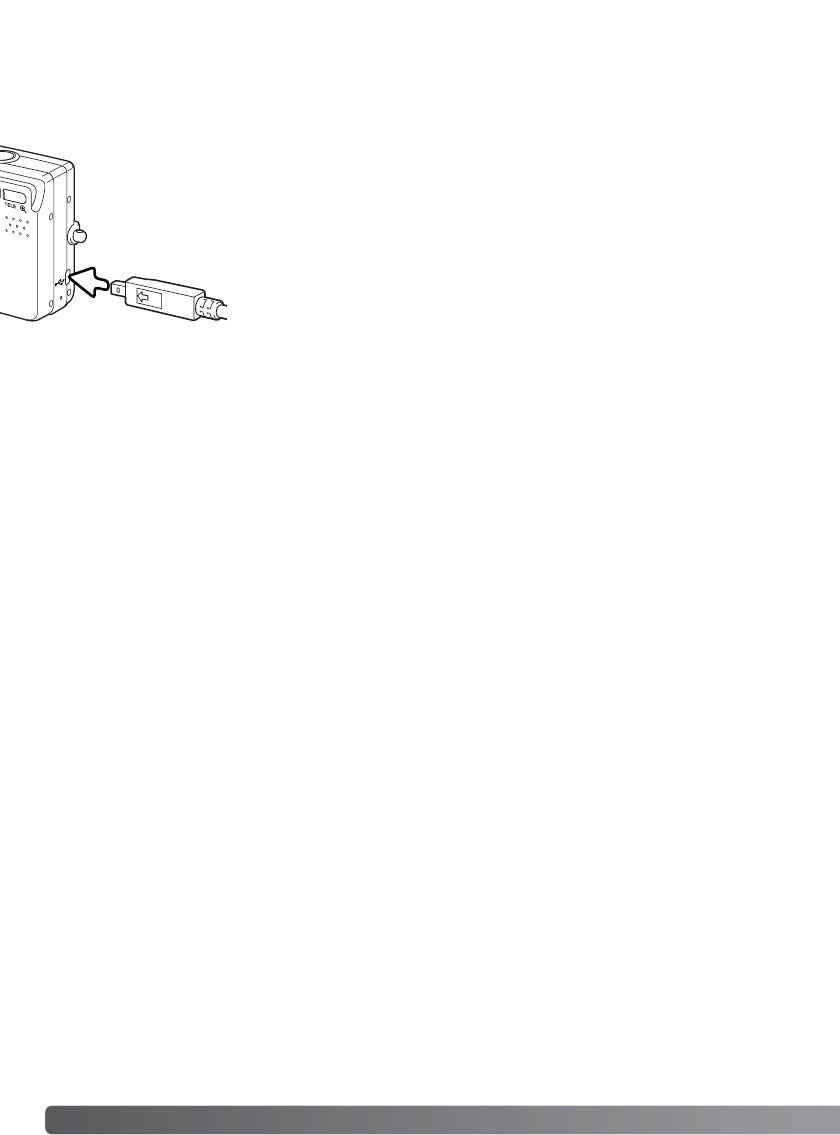
3.Insert the small plug of the USB cable into the camera. Make sure the
plug is firmly attached.
84
Connecting the camera to a computer
A fully charged battery should be used when the camera is connected to a computer. The use of the
AC adapter (sold separately) is recommended over the use of the battery. For users with Windows
98 or 98SE, read the section on page 85 on how to install the necessary USB driver before con-
necting the camera to a computer.
4.Attach the other end of the USB cable to the computer’s USB port. Make sure the plug is firmly
attached. The camera should be connected directly to the computer’s USB port. Attaching the
camera to a USB hub may prevent the camera from operating properly.
1.Insert the memory card into the camera. Confirm the memory-priority option in the setup
menu is set to the card type. To change the memory card while the camera is connected to a
computer, see page 95.
DATA-TRANSFER MODE
2.Turn off the camera.
The camera turns on automatically when it is connected to a computer; both viewfinder lamps light
to indicate the connection. When using two cards in the camera, if the card to be accessed is full,
the camera may automatically switch the memory priority to the empty card. Remove the empty
card and confirm memory priority before connecting the camera to a computer.
When the camera is properly connected to the computer, a drive icon, or volume, appears in My
Computer or on the desktop. The drive icon can be identified by the camera name and memory
card or as a removable disk. When using Windows XP or Mac OS X, a window opens requesting
instructions on what to do with the image data; follow the directions in the window. If the computer
does not recognize the camera, disconnect the camera and restart the computer. Repeat the con-
nection procedure above.


















